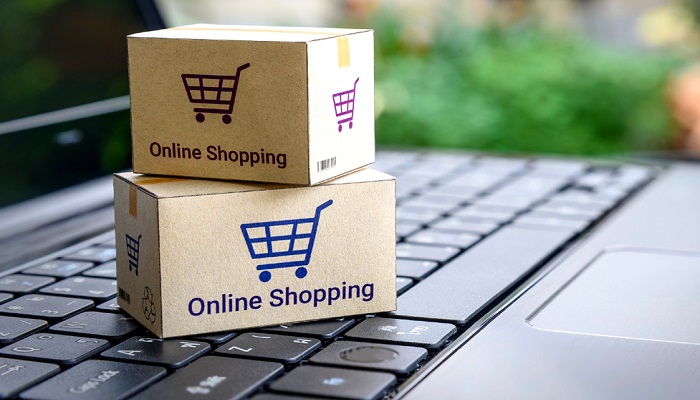Online shopping provides convenience and access to a wide range of products, but it comes with potential risks.
This article will guide you on how to safely shop online in Nigeria, ensuring that your transactions remain secure.
The most exciting development in the eCommerce market in Nigeria is the introduction of “Pay On Delivery” options in most online shops in Nigeria.
The pay-on-delivery option does not only increase Nigerians’ trust in e-commerce, but it also provides an avenue to see what you’re buying before making a payment.
Although the number of reported fraud cases in Nigeria’s e-commerce is not alarming compared to other developed countries, with cases of credit card fraud. It is important to keep some safety measures in place when doing online shopping in Nigeria.
Here are safety measures to keep you safe when shopping online in Nigeria.
Tips For Safe Online Shopping in Nigeria
1. Pay On Delivery
Most popular eCommerce stores in Nigeria (Konga, Jumia, Kaymu) now offer pay-on-delivery services. This kind of service allows the buyer to make payment only when their items are being delivered.
It’s advisable to take advantage of this option when it is available in the store.
The pay-on-delivery option not only protects your card details from exposure but also allows you to confirm the specifications of the item you’re buying. Rather than paying and stressing yourself with return shipping in case the product isn’t what you want.
2. Use Virtual Card
The virtual card can be used once and deleted, and you can generate as many virtual cards as you want from the same card.
When purchasing an item online, using a public internet service or a public computer, the virtual card option is the best way to prevent other users and hackers from having access to your card details.
3. Shipping Address
Nigeria addresses are not always specific; this makes it very easy to lose your package due to poor specification.
When shopping online in Nigeria, try as much as possible to be as explicit when describing your residential address.
You should also find a way of adding your mobile number, just in case there is a need for the delivery person to reach out to you when making a delivery.
If you live outside the big cities of Nigeria, it’s advisable to use an easily traceable proxy address, rather than your residential address, provided it’s not easily identifiable.
4. 2-Step Verification
Although most banks don’t offer this option by default. I know GTbank usually requires customers to enter an OTP (One Time Password) on the payment page when making payment online.
The OTP is automatically sent to the customer’s phone number associated with the bank account on which the transaction is about to occur.
So, if you don’t have the 2-step verification activated already, it’s advisable to visit the nearest branch of your bank and make inquiries about how to enable this service.
It does not incur additional cost on your account, so I see no reason why you shouldn’t activate it, especially when the benefits outweigh the disadvantages (if any at all)
You can also get a token device if your bank does not offer OTP on the mobile line. It costs about two thousand naira to get a token device for your bank account.
5. Use a Familiar Website
Don’t just input your card details on any website because you think it’s a “good deal.” Hackers have the reputation of cloning popular sites in order to acquire information from users.
To avoid falling victim to such incidents, shop only on trusted websites. Don’t access the website by clicking on links sent to you through email.
Always input the URL address of the site into your browser yourself. That way, you’d be sure you’re accessing the original site and not a cloned version.
6. The Password Should Be Password
I get it, you don’t want to forget your password, so you think using your name, or your date of birth would make it easy for you to remember. It is a horrible idea!
It’s supposed to be a password; something that cannot be easily guessed by a third party. Not your surname or date of birth.
When shopping on a website that stores payment and shipping details, you’re required to create an account on the site.
While creating an account, make sure you use a powerful password that is difficult to guess by your best friend.
It’s advisable to use upper case letters, lower case letters, numbers, and symbols. Even if you forget your password over time, you can always use the “forgot password” option to recover your password through your email address.
7. Secure Your Computer and Browser
Ensure your computer operating system is up to date. Malware and other infections on your computer might make your computer susceptible to phishing attempts by hackers.
Always use updated browsers and have antivirus and malware protection software installed on your computer. Most of this software would alert you when you’re about to access an unsecured website.
8. HTTPS Not HTTP:
This might not make much difference to those who are not tech-savvy, but I would write about it either way.
Some online shops in Nigeria are more secure because of additional security measures installed on the server hosting the site. Websites with HTTPS (take note of the “s”) are considered more secure because of the secure socket layer attribute of the server.
Don’t ever shop on a website without the “s.” Such sites are liable to server attacks, and as a result, your details on their server might be at risk.
Conclusion
Safe online shopping in Nigeria is achievable with the right precautions.
By choosing reputable websites, securing your connection, and staying vigilant, you can enjoy the benefits of e-commerce while safeguarding your personal and financial information.
RELATED ARTICLES


